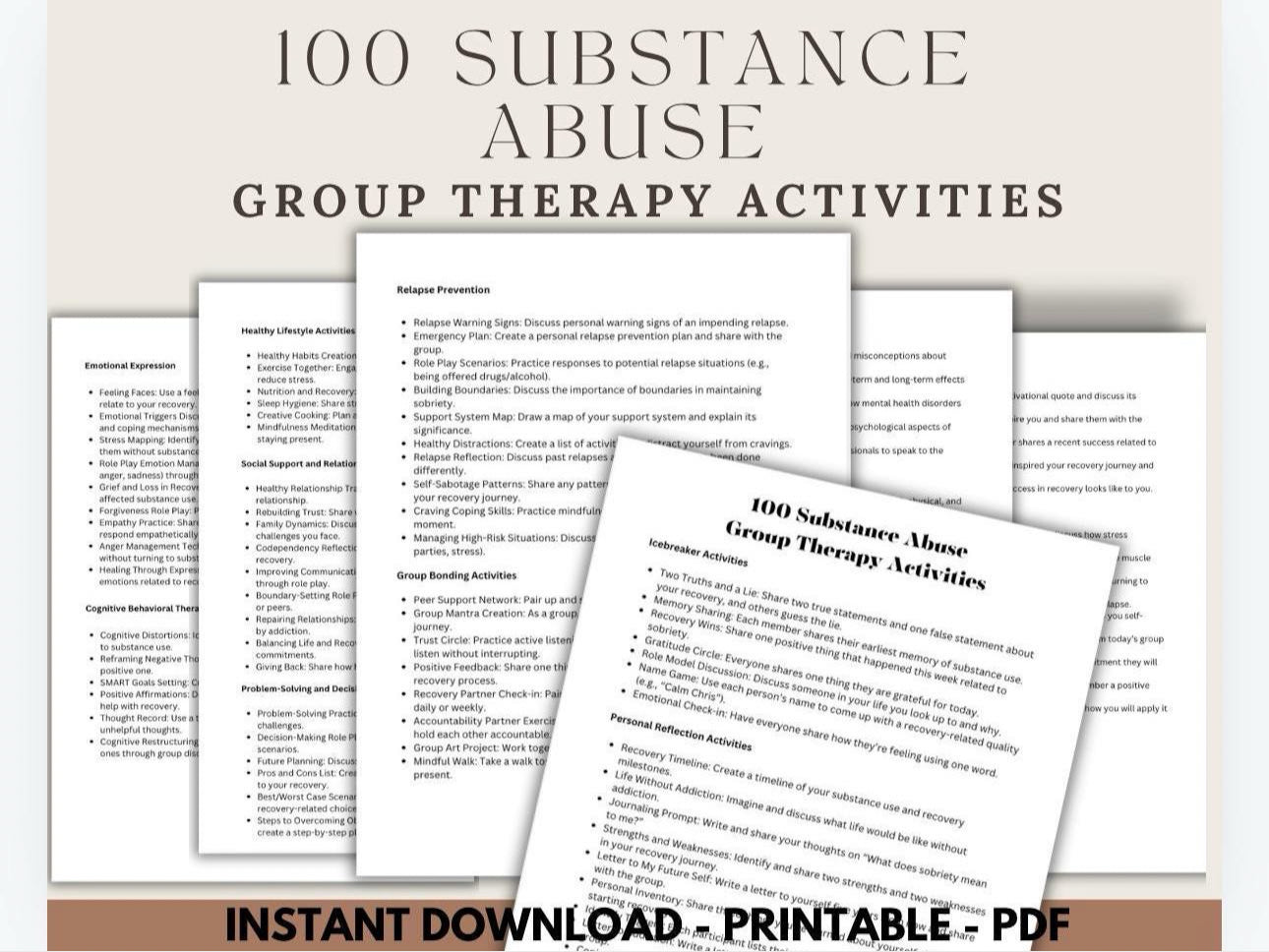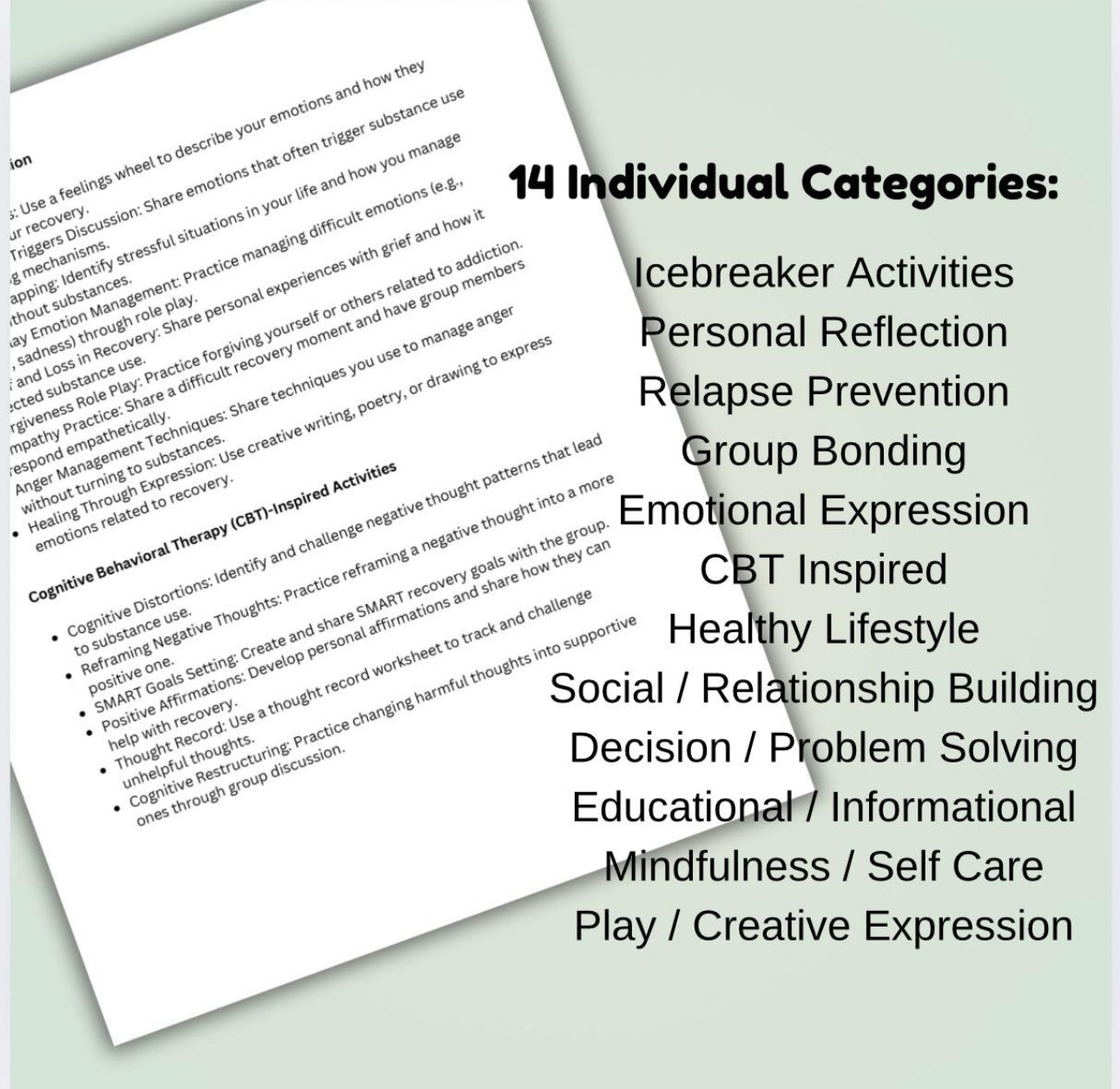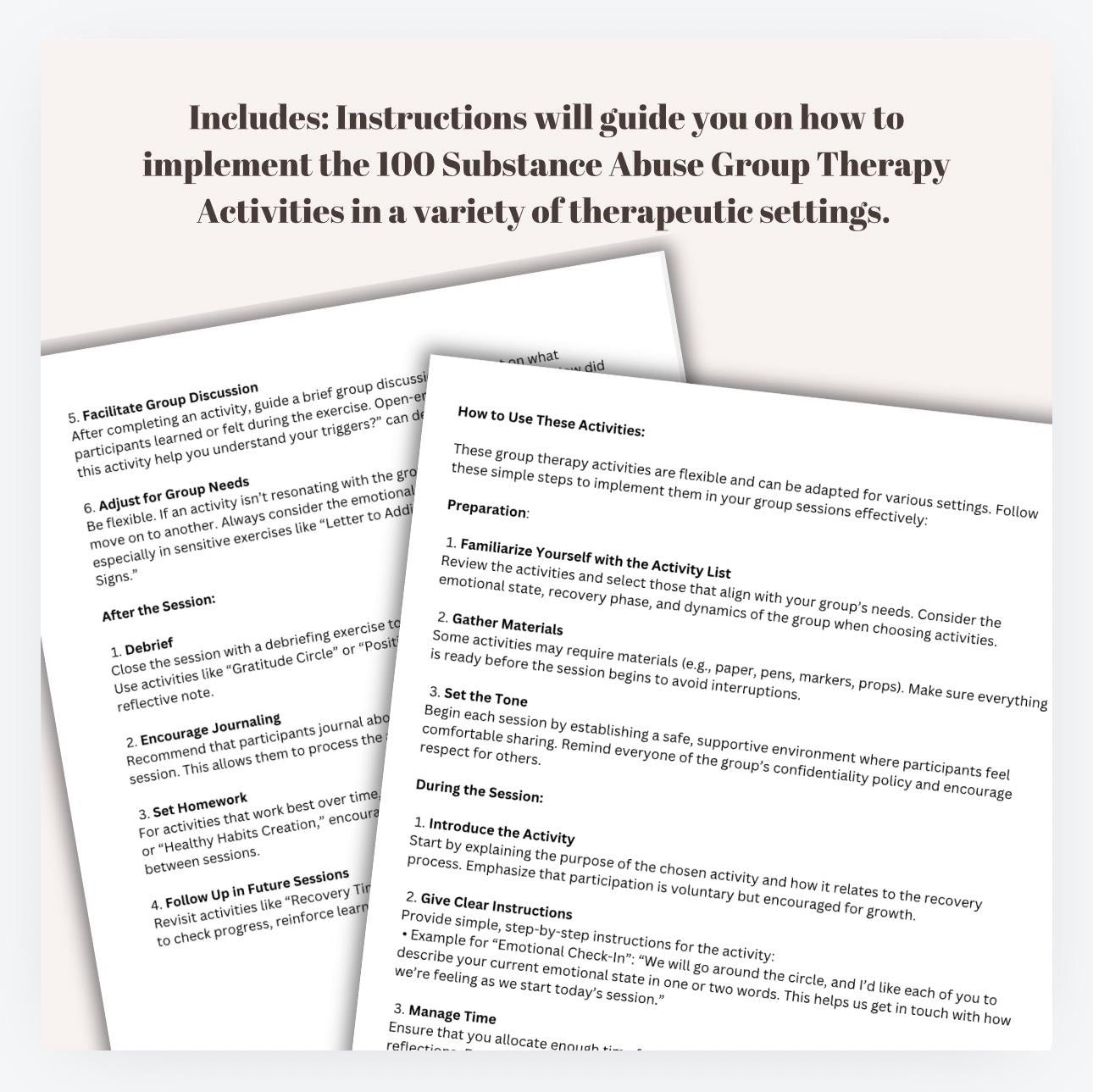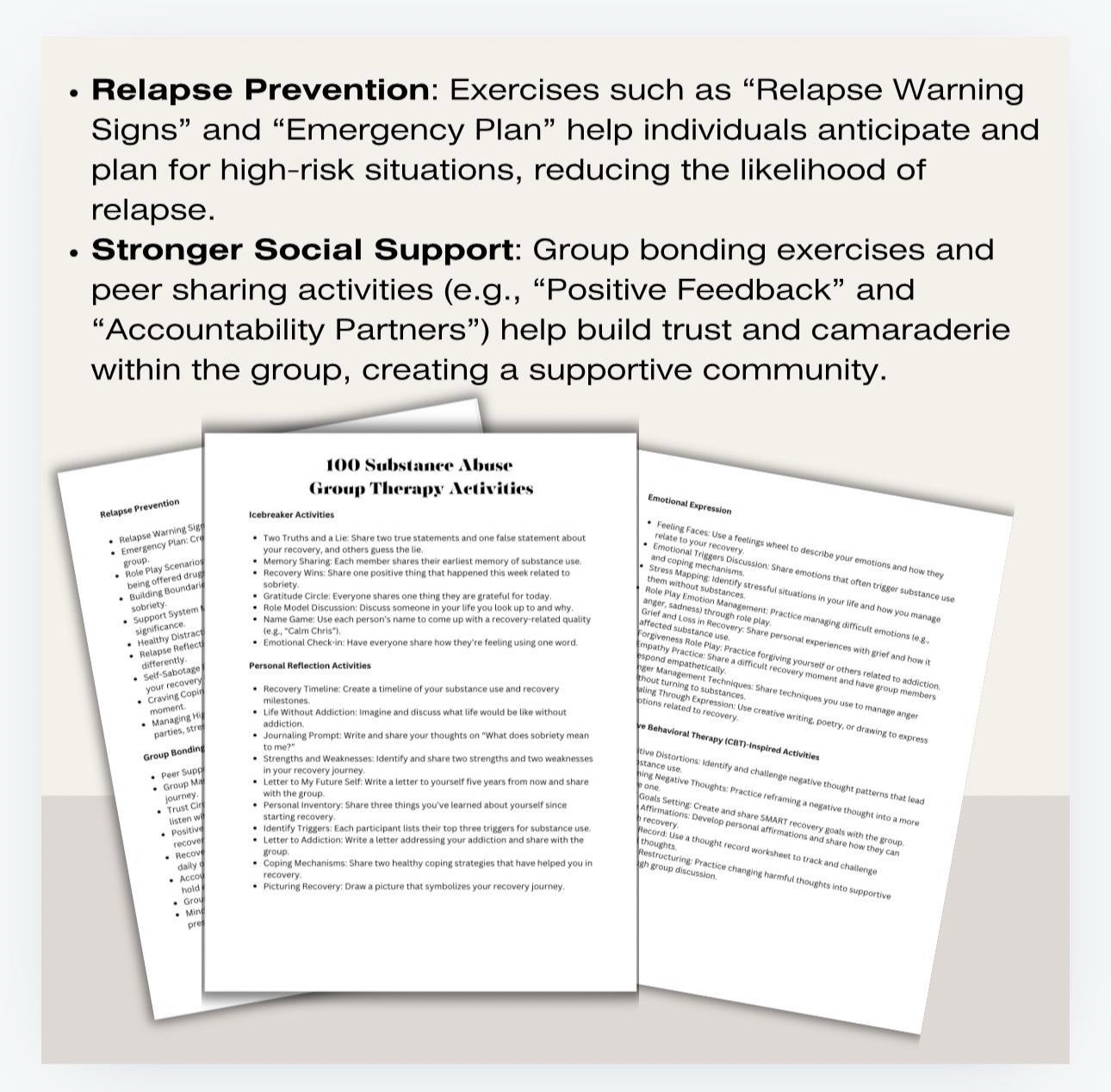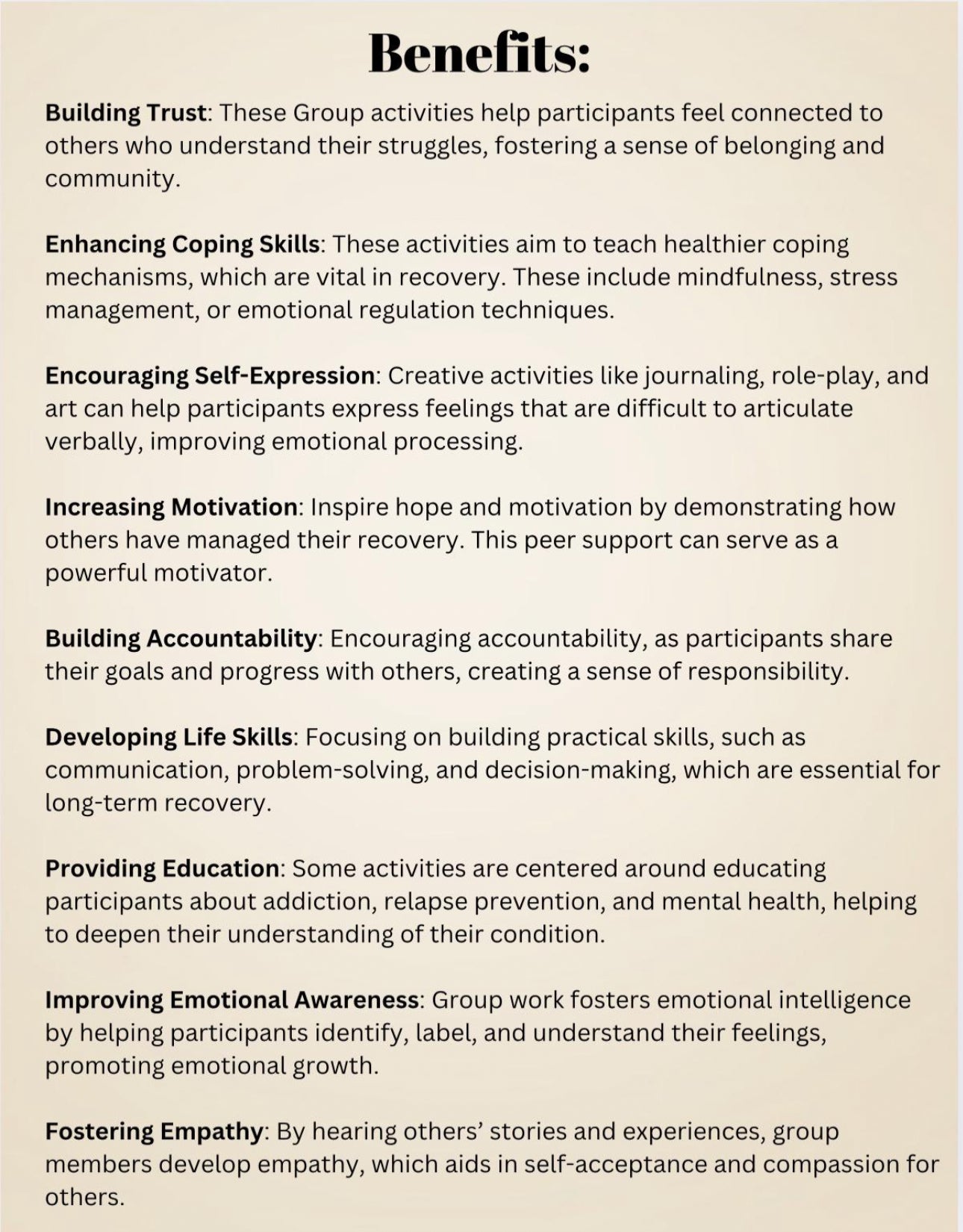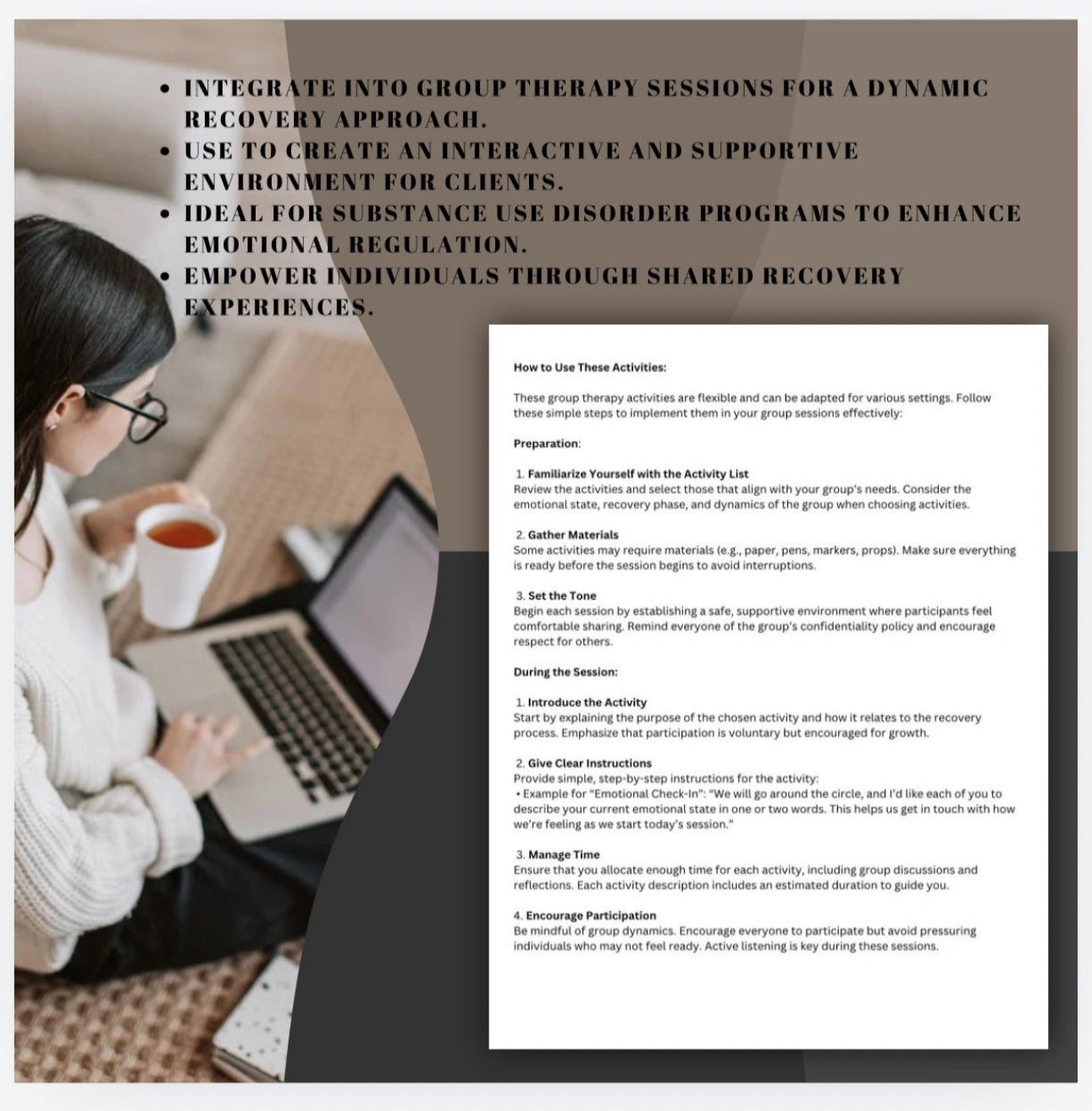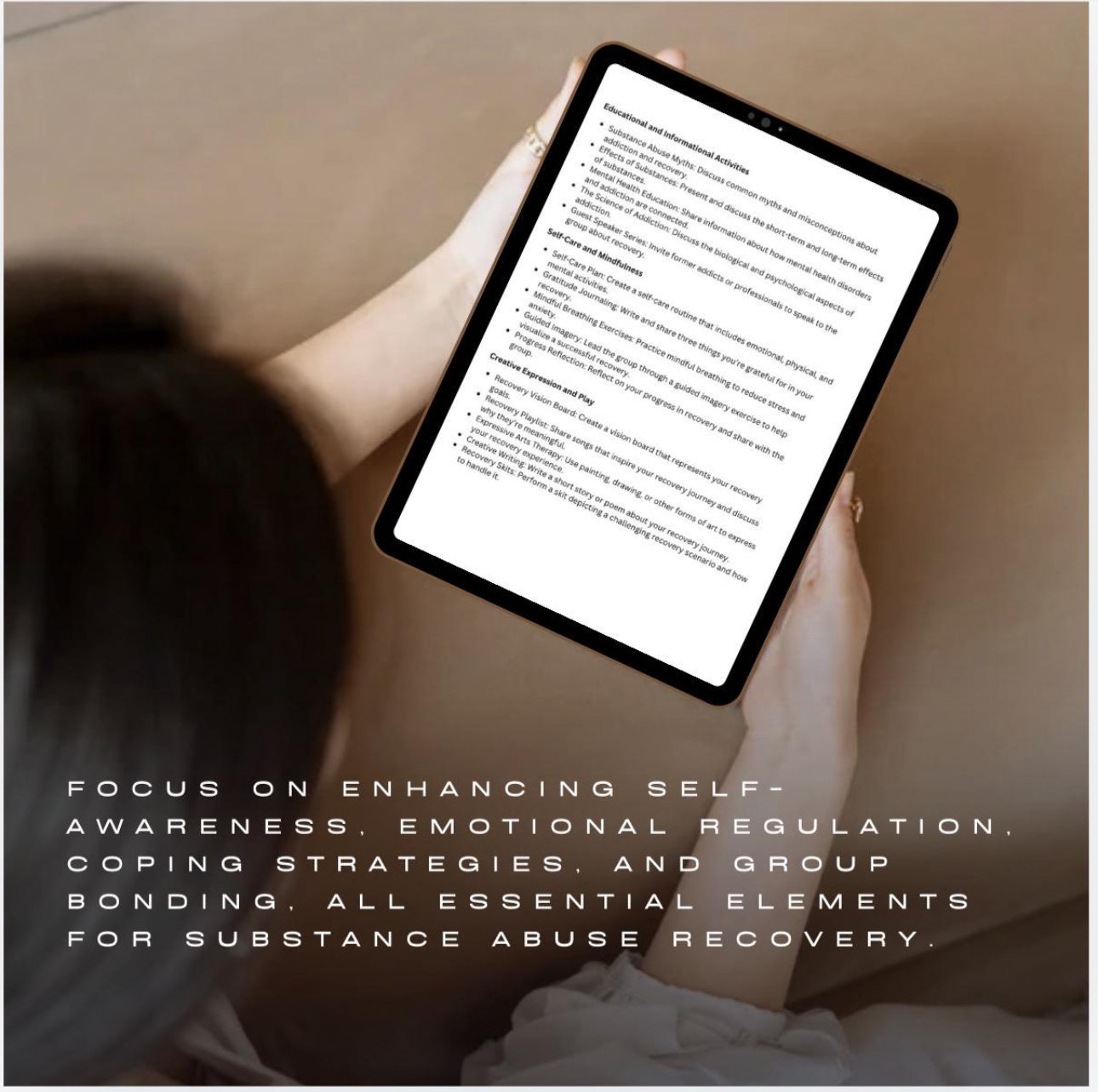Mind Shift Health
Substance Abuse Group Activities Group Therapy Support Emotional Check In Recovery Session
Substance Abuse Group Activities Group Therapy Support Emotional Check In Recovery Session
Couldn't load pickup availability
This list of 100 Substance Abuse Group Therapy Activities is designed to support group facilitators, counselors, therapists, and recovery coaches in guiding individuals through their recovery journey. The activities focus on creating a safe space for participants to reflect, share, and build skills essential for long-term sobriety. Each activity is tailored to promote emotional expression, relapse prevention, self-awareness, communication, and problem-solving. The activities range from reflective exercises and creative expression to educational discussions and mindfulness practices, ensuring a comprehensive approach to substance abuse recovery.
Who Can Use It:
1. Group Therapists & Counselors: Can integrate these activities into group therapy sessions to provide structure and meaningful engagement.
2. Recovery Coaches: Can use the activities to create an interactive environment for clients seeking support in addiction recovery.
3. Substance Abuse Counselors: Can incorporate the activities into substance use disorder programs to enhance emotional management, coping strategies, and relapse prevention skills.
4. Rehabilitation Centers: Ideal for residential or outpatient rehab programs to keep clients motivated, self-aware, and accountable.
5. Support Group Leaders (AA, NA, etc.): Can offer a variety of group activities to foster peer support and increase engagement during meetings.
6. Peer Support Specialists: Can utilize these activities in peer recovery circles, empowering individuals through shared experiences.
7. Community Health Workers: Can implement these exercises to provide education, skill-building, and emotional support in substance abuse outreach programs.
Benefits:
1. Enhanced Emotional Expression: Activities like “Feeling Faces” and “Emotional Check-In” help participants identify and express their emotions, fostering emotional intelligence and better self-management.
2. Relapse Prevention: Exercises such as “Relapse Warning Signs” and “Emergency Plan” help individuals anticipate and plan for high-risk situations, reducing the likelihood of relapse.
3. Improved Self-Awareness: Activities like “Recovery Timeline” and “Letter to Addiction” encourage self-reflection, helping participants gain a deeper understanding of their addiction and triggers.
4. Stronger Social Support: Group bonding exercises and peer sharing activities (e.g., “Positive Feedback” and “Accountability Partners”) help build trust and camaraderie within the group, creating a supportive community.
5. Coping Skills Development: Activities such as “Coping with Cravings” and “Managing High-Risk Situations” equip participants with practical tools to manage stress, cravings, and emotional difficulties.
6. Increased Motivation: Motivational activities like “Recovery Vision Board” and “Inspiration Jar” help participants stay inspired and committed to their recovery goals.
7. Creative and Engaging Sessions: Creative activities like “Expressive Arts Therapy” and “Recovery Skits” keep sessions fun, engaging, and therapeutic, ensuring participants stay involved.
8. Holistic Healing: Incorporating mindfulness, stress management, and lifestyle-focused activities (e.g., “Mindful Meditation” and “Healthy Habits Creation”) supports recovery on emotional, mental, and physical levels.
9. Communication and Relationship Skills: Group discussions, role-plays, and exercises like “Setting Boundaries” and “Improving Communication” improve interpersonal skills, helping participants rebuild relationships affected by addiction.
10. Structured Progress: Regular check-ins and goal-setting activities provide participants with a sense of structure and measurable progress in their recovery journey.
Share
